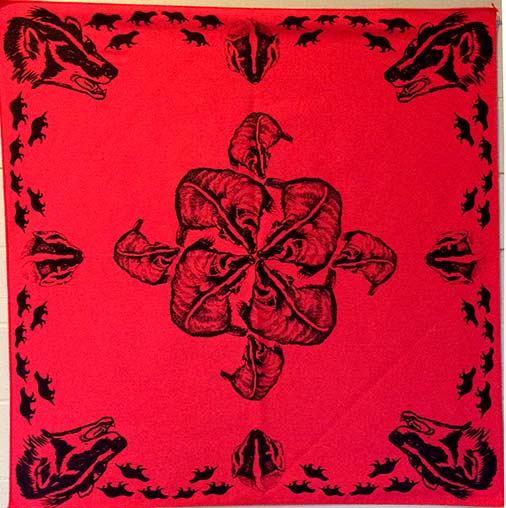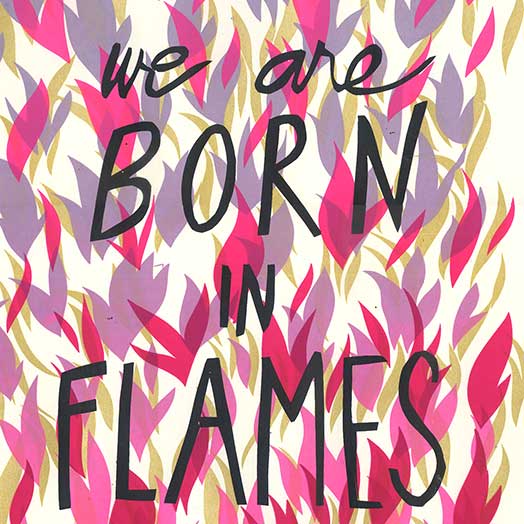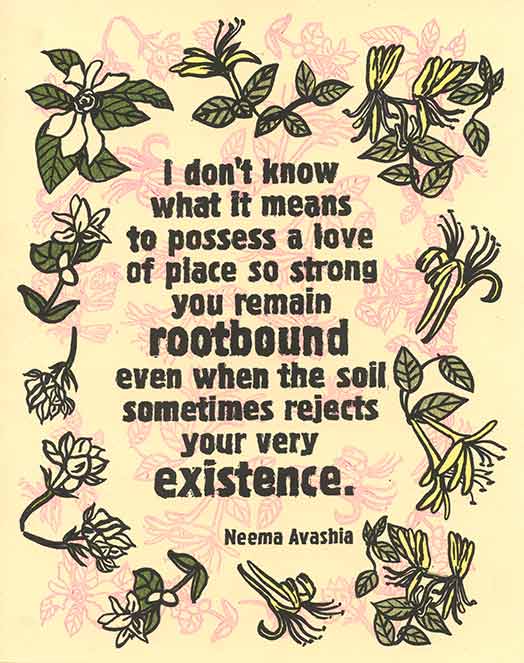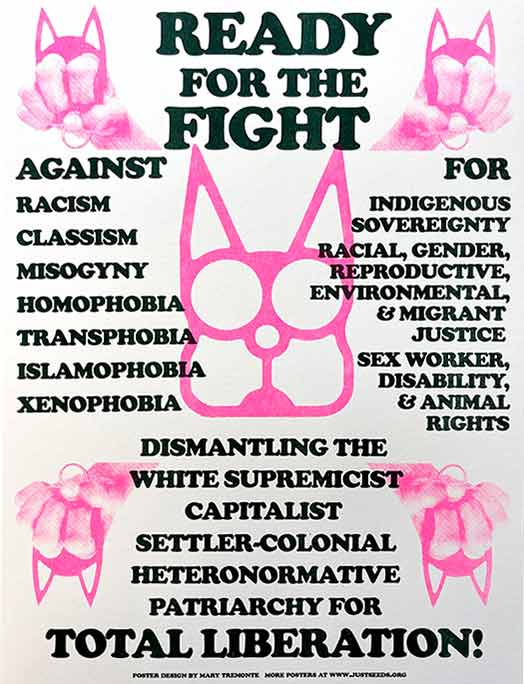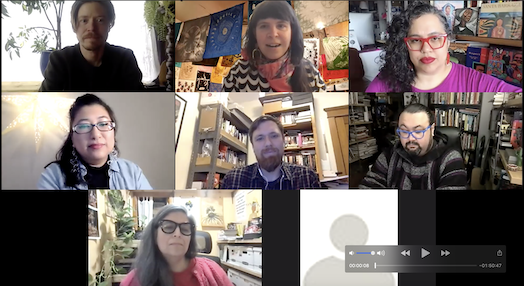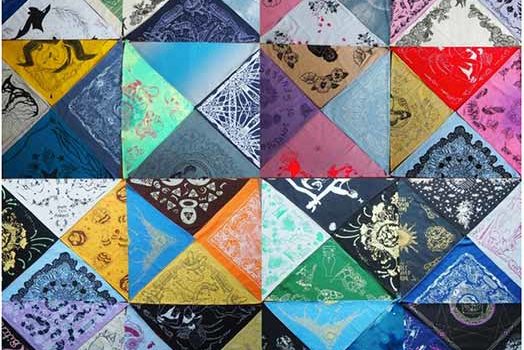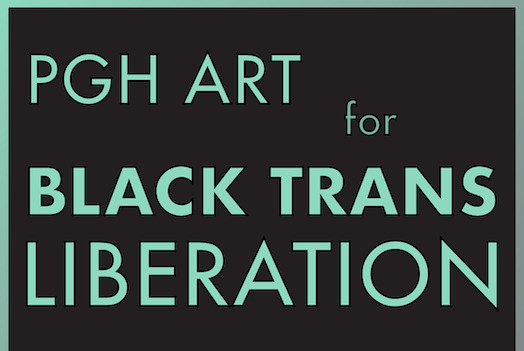This four-layer silkscreen print is about plant knowledge, Indigenous knowledge, women's knowledge.
I began working on this print while spending time at ACRE (Artists Cooperative Residency and Exhibitions), which is an artist residency tucked away on forested and farmed rolling hills in the southwestern corner of Steuben, Wisconsin. In early July there were so many edible and medicinal flowers in full force, including chicory, Queen Anne's lace, sumac, and tiger lilies. I made a tea from the sumac, a "pink lemonade," and I included chicory and Queen Anne's lace in this print.
Chicory, those lovely periwinkle flowers, has edible blooms, but more well known perhaps is that the root can be roasted, ground, and used as a coffee substitute. You can buy tins of Cafe du Monde coffee with chicory at many Asian grocery stores all over the USA and can drink that coffee brewed fresh and served with beignets at their touristy cafe in the French Quarter of New Orleans.
Queen Anne's lace, also known as wild carrot, is long known as an emmenagogue, that is, the seeds can be taken to prevent a fertilized egg from implanting on the wall of the uterus, and so can be used as a contraceptive. For more information about herbal gynecology, I recommend Hot Pants: Do It Yourself Gynecology, and Reclaiming Our Ancient Wisdom: Herbal Abortion Procedure and Practice for Midwives and Herbalists by Catherine Marie Jeunet, which is available from Eberhardt Press. Never try any herbs without proper consultation with a doctor or herbalist.
I studied these plants and made many drawings with pen and ink. Then I cut rubylith for each layer of this print, and printed with hand-mixed metallic inks, onto Stardream sparkly metallic cardstock. I designed and printed the first three layers of the print at ACRE, in the print shack, and cut and printed the final layer back in Toronto. Each of these layers were printed outdoors, in the Summer warmth.
I hope you enjoy it as much as I enjoyed walking in the country, studying these plants through observational drawing and written research, cutting rubylith, mixing all those sparkly inks, and finally pushing ink through the screen.
These prints are the remaining edition from our Community Supported Art program in 2015.

